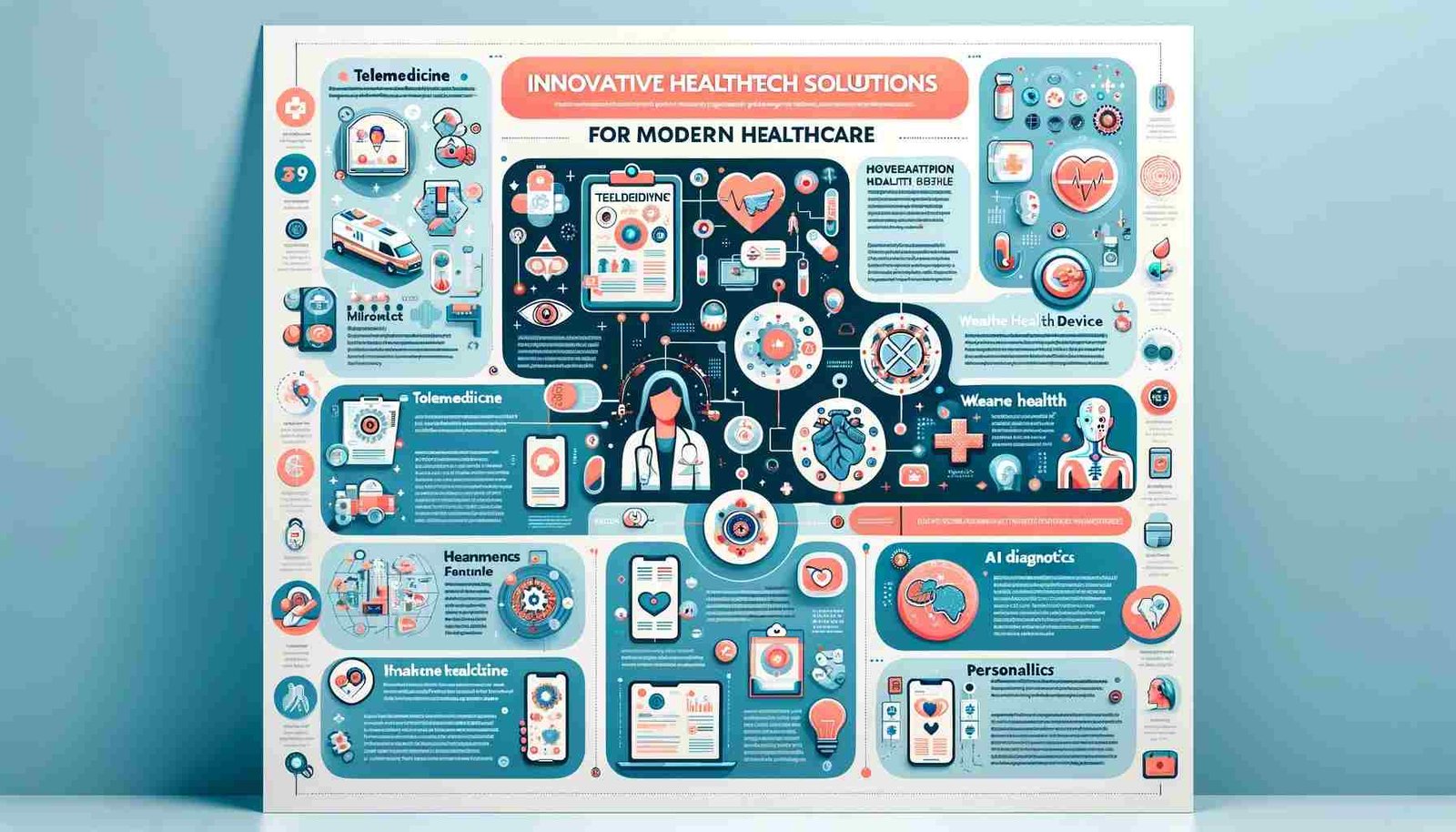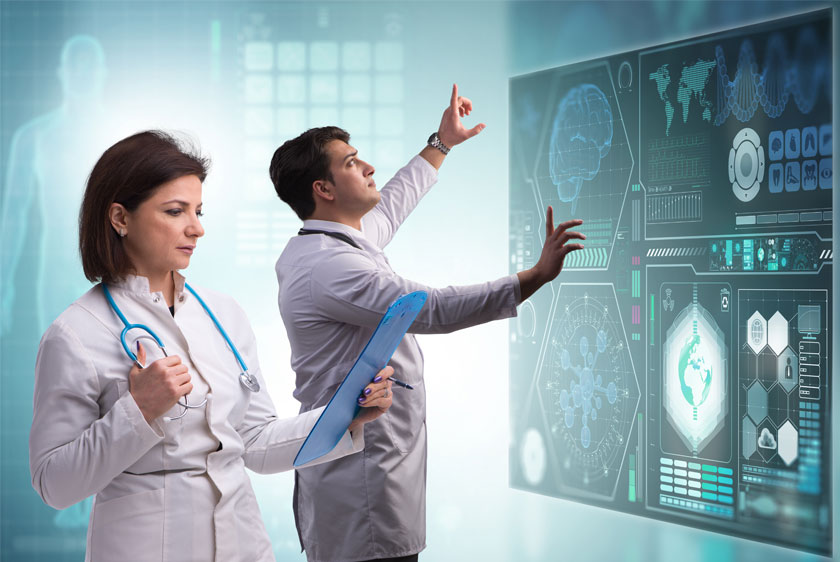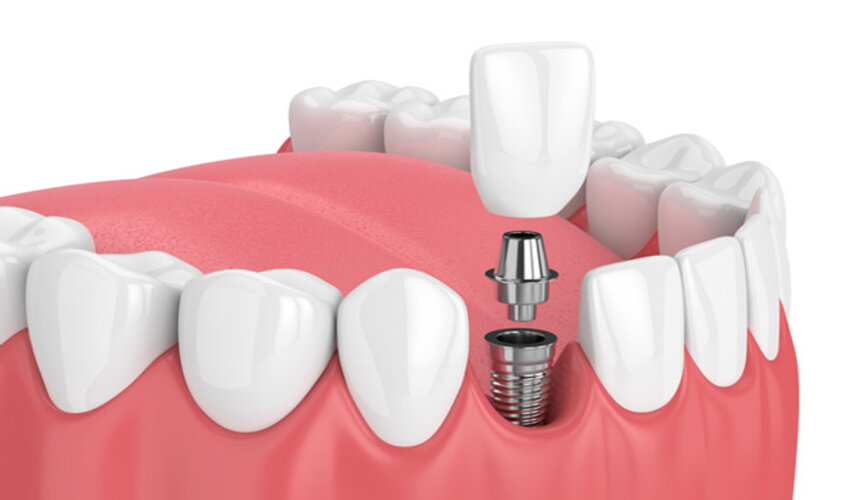Technology is playing an important role for almost every aspect of our lives today, as the world becomes more and more rapid. The healthcare sector is no exception, with innovative healthtech solutions that change how we deliver care. These advances have changed the landscape of modern health care, from telemedicine to wearables and improved outcomes for patients.
The role of Innovative healthtech solutions in modern medicine
A wide range of technologies aimed at improving the delivery of healthcare services are included in HealthTech. To improve processes, enhance health care and reduce costs, these solutions are based on the latest technologies including Artificial Intelligence, Big Data & Internet of Things. Healthcare providers can deliver more personalised care, improve accuracy and increase efficiency by exploiting the power of these technologies.
Innovative healthtech solutions
1. Telemedicine
Telemedicine allows patients to consult with healthcare providers remotely, improving access to medical services, especially in underserved areas. Platforms like Teladoc and Amwell enable virtual consultations, reducing the need for in-person visits and increasing convenience.
2. Wearable Health Monitors
Wearable devices such as the Apple Watch and Fitbit track vital signs, physical activity, and other health metrics. These devices help in the early detection of health issues and promote proactive health management by providing real-time data to users and healthcare providers.
3. AI-Powered Diagnostics
Artificial Intelligence (AI) is revolutionizing diagnostics with tools like IBM Watson Health and Google’s DeepMind. These AI systems analyze medical data to assist in diagnosing diseases such as cancer and diabetic retinopathy, offering more accurate and faster results compared to traditional methods.
4. Remote Patient Monitoring
Remote patient monitoring systems, such as those provided by companies like Medtronic and Philips, allow continuous tracking of patients’ health conditions from their homes. These systems use connected devices to monitor vital signs and transmit data to healthcare providers, facilitating timely interventions.
5. Personalized Medicine
Personalized medicine tailors treatments to individual genetic profiles. Companies like 23andMe and Foundation Medicine offer genetic testing that helps in creating customized treatment plans, improving the effectiveness of therapies and reducing adverse effects.
6. Robotic Surgery
Robotic surgery systems like the da Vinci Surgical System enhance precision in surgical procedures. These systems allow surgeons to perform complex surgeries with minimal invasiveness, reducing recovery times and improving patient outcomes.
7. Mobile Health Apps
Mobile health apps, such as MyFitnessPal and Headspace, support health and wellness management. These apps offer functionalities like tracking nutrition, exercise, mental health, and medication adherence, empowering users to take control of their health.
8. Blockchain for Health Records
Blockchain technology ensures secure and interoperable electronic health records (EHRs). Platforms like Medicalchain and Guardtime facilitate the secure sharing of medical data, ensuring privacy and improving coordination among healthcare providers.
9. 3D Printing in Medicine
3D printing technology is used to create customized medical devices, prosthetics, and even bioprinted organs. Companies like Organovo and Stratasys are pioneering these innovations, providing personalized solutions that enhance patient care.
10. Virtual Reality (VR) for Therapy
Virtual Reality (VR) is being used for therapeutic purposes, such as pain management and mental health treatment. VR platforms like AppliedVR offer immersive experiences that help in managing chronic pain and treating conditions like PTSD and anxiety.
The future of Innovative healthtech solutions
The possibilities for health technology in modern healthcare are endless, as technologies continue to develop. The future of health care is bright with innovation, such as the use of Virtual Reality to treat pain and Genomic Sequencing for Personalized Medicine. Healthcare providers can take advantage of these advances to provide quality care, increase patients’ outcomes and keep up with the pace of developments in this constantly changing sector.
Conclusion
Innovative HealthTech solutions are transforming modern healthcare by improving accessibility, enhancing diagnostic accuracy, and personalizing treatment. These advancements not only improve patient outcomes but also streamline healthcare delivery, making it more efficient and effective. As technology continues to evolve, the integration of these solutions into mainstream healthcare will likely become more widespread, leading to even greater improvements in global health.

















Leave a Reply